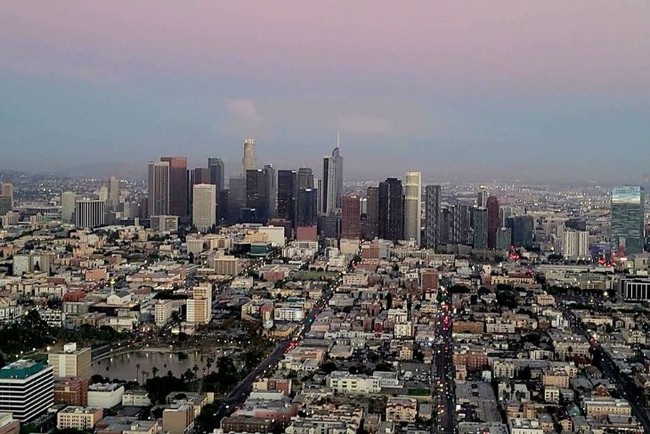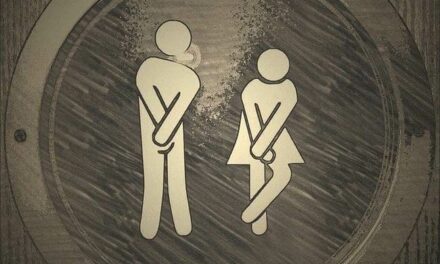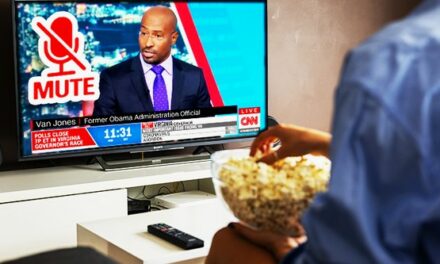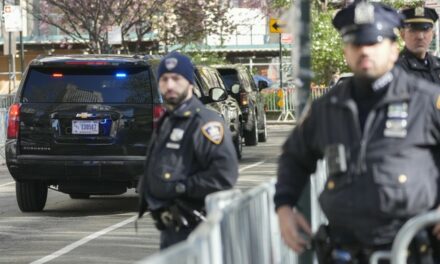We support our Publishers and Content Creators. You can view this story on their website by CLICKING HERE.

On Tuesday, the Los Angeles City Council formalized what had long been an unofficial policy. By a unanimous vote, the council declared Los Angeles to be a “sanctuary city” in which municipal resources may not be used in the service of immigration enforcement. In practical terms, the declaration will have little effect, as the Los Angeles Police Department has been constrained from immigration enforcement since 1979, at which time Special Order 40 was instituted by then-chief Daryl Gates.
Advertisement
The council’s vote was not a policy shift, but rather a raised middle finger to Donald Trump. Trump in no small part owes his electoral victory to his emphasis on the sad state of our southern border, which has become little more than a line indicated on a map but not in reality, across which one may pass at will without fear of consequences.
Until Jan. 20, that is, when Mr. Trump resumes the presidency and, if he fulfills one of his campaign promises, proceeds to deport some of the millions of illegal migrants who have entered the country in recent years, many of whom have settled in Los Angeles.
The U.S. Census Bureau tells us that 1.3 million Los Angeles residents are foreign-born and that just under half of them are not U.S. citizens. (There is no distinction in the census tables regarding immigration status, but based on my experience with the LAPD, from which I retired about ten years ago, the percentage of illegals among the foreign-born in L.A. is high.)
The city council vote is simply a reflection of what has long been a reality in Los Angeles, which is that illegal immigrants constitute a political constituency to be courted and coddled, whether or not they can vote (and it’s anyone’s guess as to how many of them do). A case in point is the proliferation of sidewalk food vendors, who often operate within sight of established restaurants run by legal immigrants, people burdened with such costs as rent, city business license fees, health department inspections, and other overhead.
Advertisement
When these vendors began appearing in significant numbers in the 1990s, the LAPD responded to complaints from legitimate restauranteurs and others by citing them and confiscating their wares. This practice came to be seen as cruel, even racist, by some in local government. After all, the police were told, the vendors were just trying to eke out a living as they might have in the Old Country. This raised the question: If they’re so fond of doing things as they would in the Old Country, why did they come here?
But one must not dare ask such questions, not then, not now. The proposed solution was to regulate the vendors, charging them a license fee and subjecting them to inspections. The result: the vendors seldom pay the fee and are seldom inspected, and they are thereby free to dispense warm germs to passersby and wave at passing police cars without fear of being hassled.
Which is fine, I suppose, as on the list of priorities for today’s LAPD officers, illegal sidewalk vendors must rank fairly low. But Los Angeles does still have a considerable gang problem, and some of those gangs include members who are in the country illegally. It is the apparent desire of the L.A. City Council that these people do not fret over the possibility of deportation should they be arrested by LAPD officers for some local charge.
There was a time when immigrants, even legal ones, were expected to assimilate to the ways of their host country and take care not to violate even the most minor of laws. No longer. In Los Angeles, where the members of the city council range from left to far left, it is the citizens and legal immigrants who are expected to assimilate to the ways of the illegal newcomers.
Advertisement
The lefties in L.A. city government may raise their middle fingers at Donald Trump all they like, but under new Border Czar Tom Homan, a change is coming. So here’s a question for the LAPD and newly installed Chief Jim McDonnell: When ICE agents come to put the grab on some illegal immigrant gangster in an L.A. neighborhood, and when things go awry and a hostile crowd tries to impede the agents in their mission, when the cops arrive, with whom will they stand?

 Conservative
Conservative  Search
Search Trending
Trending Current News
Current News 







